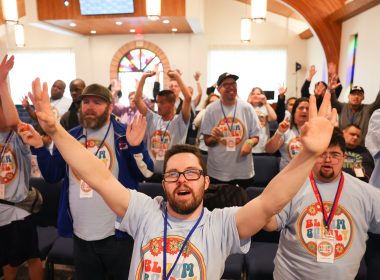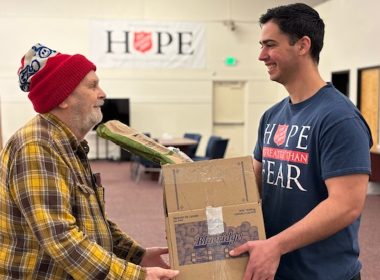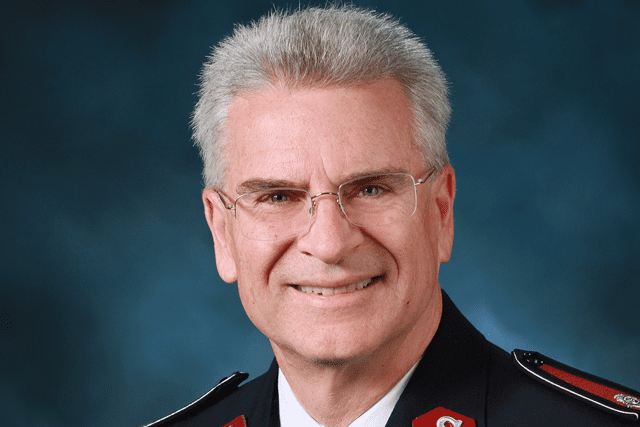 BY FRANCES DINGMAN –
BY FRANCES DINGMAN –
A rough-and-ready officer who knew how to get things done–that was C. W. Bourne.
A traditionally raised English boy, he was born in 1868 to Episcopalians who made him “as happy a home as I could wish for.” After studying for the law, he passed his first law examination at age 16, and spent a summer in France to complete his education in that language. He then had a seat as an “articled clerk” in a rising young lawyer’s office in London while continuing to study law.
After business reverses caused his family to move to another town, he met a young man who was going to California, and left with him in 1887. In Fresno, while living with an English family, he worked at different jobs on raisin and stock ranches and quickly picked up the rough ways of a typical ranch hand. He made a living for some time by odd jobs, horse breaking and working in livery stables.
He confessed that every cent he made found its way to a saloon. One day an ex-British Army friend of his announced he was joining The Salvation Army, which was just beginning in Fresno. At first Bourne was horrified, and plotted ways to rescue him. Then he began attending the barrack, though “I thought for quite awhile that they were hypocrites and then cranks.
“I had been, before I left England, a slave to tobacco, and now I hardly ever had a pipe out of my mouth. I was passionately fond of cards…”
Saved by Kyle
But while he was getting lower, God took hold of him. One night, to the surprise of all, he got saved and was sworn in as a soldier by Major Philip Kyle. He worked for awhile in Fresno and then moved to San Francisco.
There Kyle approached him about forming an evangelistic cavalcade and riding through the wilds of California. Bourne’s experience proved to be most helpful. Together they attended a horse sale, bidding on a bunch of wild broncos, which Bourne then broke. During the cavalcade he drove the four-horse wagon, living many adventures and hardships. Later he helped obtain the wagon and horses for the Charioteers.
His greatest fear, he said, had been that his parents would oppose his going into the S.A., but they were convinced it was God’s will and were satisfied as long as he was where God wanted him to be.
After serving in Reno, Nev., and Grass Valley, Calif. he was sent to headquarters as bookkeeper and War Cry cashier.
Finds life partner
In 1895 he married Captain Alice Smith of Oakland, and together they accomplished some notable work. They had two children, Charles and Margaret. In 1904 the Army purchased a ranch at Lytton Springs, near Healdsburg, Calif. Nineteen children were placed under the charge of the Bournes, and at the new location it was incorporated under the name of Boys and Girls’ Industrial Home and Farm. Though at first Territorial Commander Lt. Commissioner George Kilbey lacked confidence in Bourne’s management abilities (a disadvantage of governing from so far away in Chicago), he could hardly have placed a better couple in charge of such a home.
Bournes make a home
The Bournes arrived with children by stagecoach from the Cherry Tree Home at Amity, Colo., with exactly $21 to get them started. There were practically no stock, fences, roads, ditches or fruit trees. The pioneer superintendent and his wife achieved a homelike atmosphere. Children from the Golden Gate Home made up the rest of the original number: 25 at once and a like number a little later. Discipline was strict but loving, and the beautiful campus provided Christian surroundings where the children could learn to live with one another and eventually support themselves.
Bourne offered sound advice to the orphans who hoped to start a new life there. He often was heard to say, “A man is what he makes of himself. Once made, no other man can take that from him.” Meanwhile, “Mother” Bourne, as she was known to the 1,500 children who lived at Lytton from 1904 to 1916, also expected a great deal of personal effort and self-discipline from her young charges. A strict disciplinarian, she never resorted to spanking.
Rather, counseling and lectures were her mainstays when it was necessary to discipline the children.
Still, it was said that even though the orphans didn’t like to be scolded by the Captain, they dreaded the long walk from his office, down a long hallway, where Mother Bourne waited to dole out the non-corporeal punishment she felt they deserved. For 15 years the Bournes were administrators, and during this time enrollment in the Home increased considerably.
While at Lytton, Bourne headed the Western contingent of “cowboy officers,” who caused much favorable comment at their appearance during the 1914 Congress in London.
The old Charioteer wagon came to rest behind the barn at Lytton, and while he was there Bourne allowed no one else to drive it. It took part in the welcome of guests and in many parades.
When they left Lytton after 14 years, there were 250 children there, and many good citizens of California owed their start in life to the care and guidance of this couple.
Serves in France
Mrs. Bourne, who had overworked while at the ranch, was in need of a complete rest, and the Colonel joined Salvationists at the front. Until 1921 he was in command of Salvation Army postwar work in France and Germany. A short tour on the lecture circuit led to command of the Hawaiian Island Division, where he organized mounted outriders to travel among the hills.
Leaving Hawaii in 1924, he was sent to India as a personal representative of the late General Bramwell Booth, where he inspected and reported on the weaving and craft work at the Salvation Army colonies in that country. After that came assignments as Territorial Special and divisional commander pro tem.
For 18 months, in charge of the Special Efforts Department, he represented the Army with various Community Chest bodies. The Bournes retired from active duty after 37 years of service. For seven years he acted as supply pastor for the First Presbyterian Church at Tracy, Calif.
In 1941 he was killed instantly when struck by a car as he was crossing the street to mail a letter. The Commissioner, the Chief Secretary and a training college quartet participated in the combined Presbyterian and Salvation Army service. Among the out of town guests were 30 or more men and women who had been under the Bournes’ care at Lytton. Some came from as far away as Los Angeles to pay tribute to their childhood benefactor.
Mrs. Bourne, fondly remembered as “Mother” by hundreds of children who stayed at the Home, was promoted to Glory in 1967.










